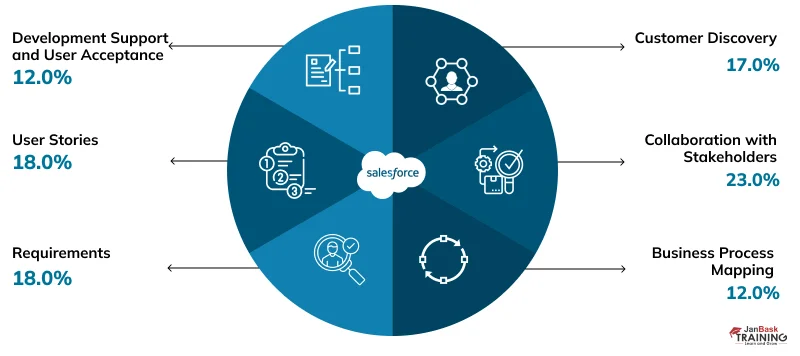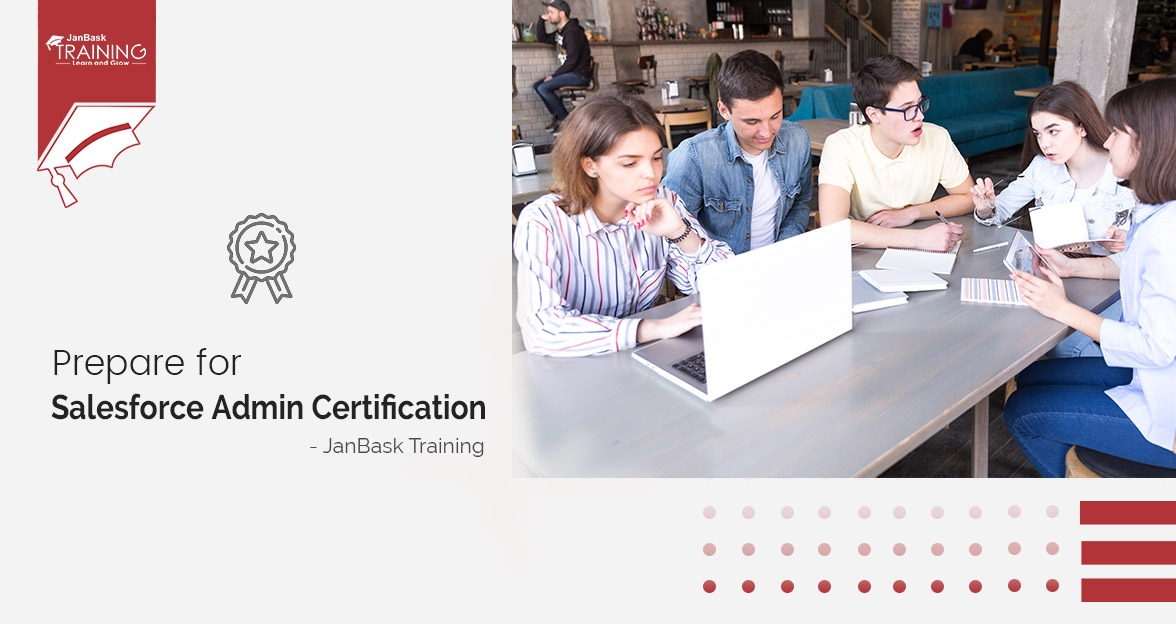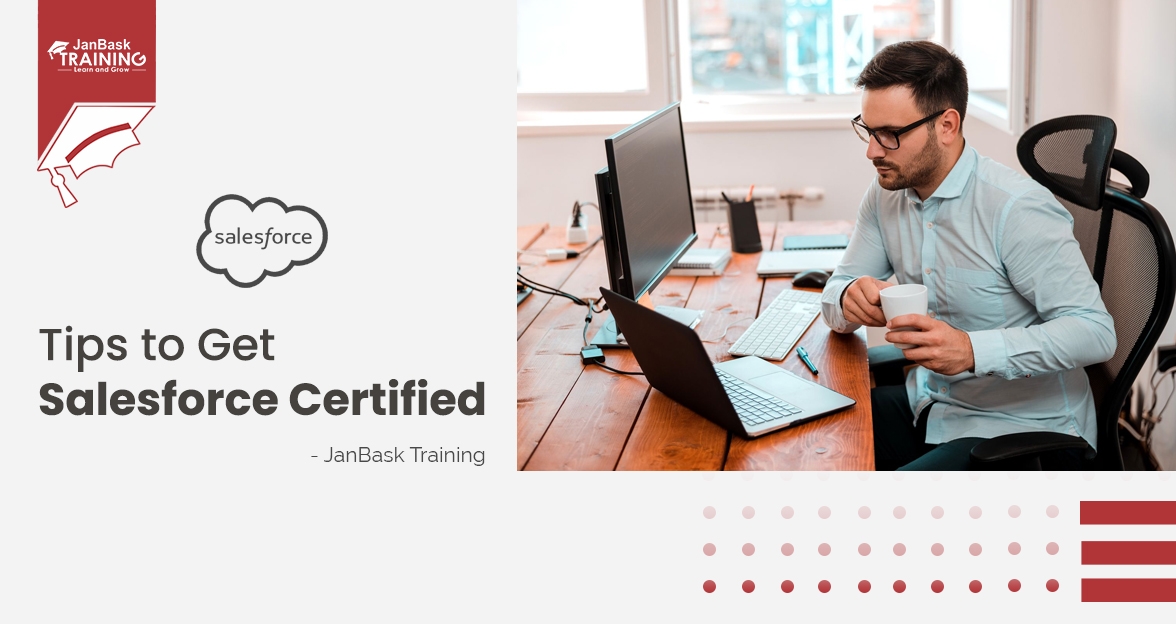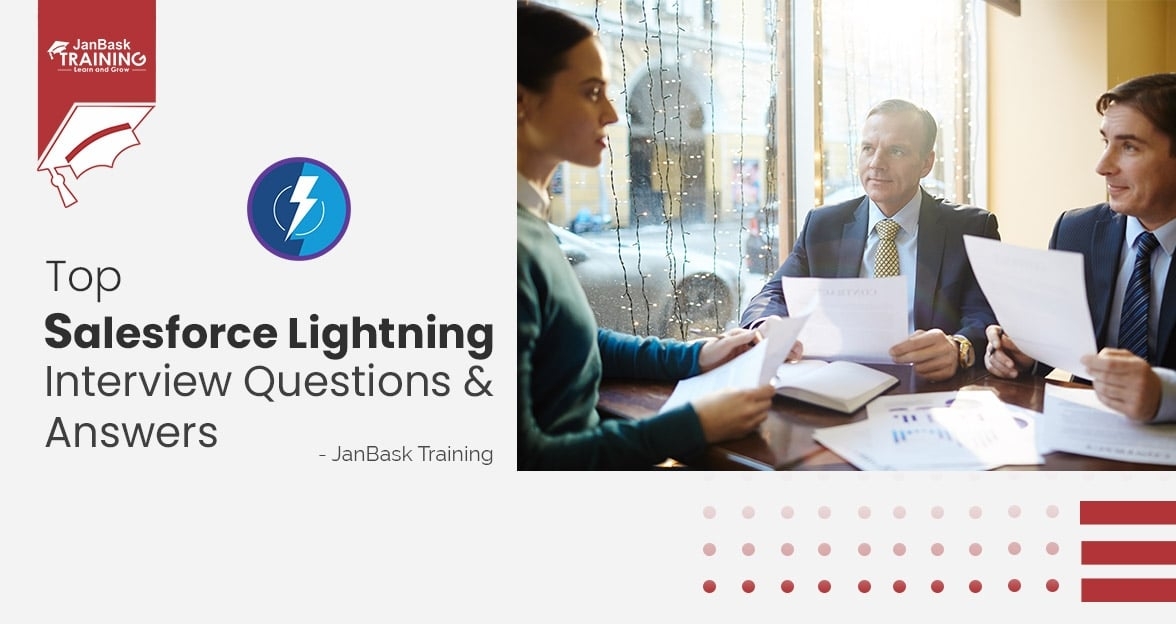Introduction
Salesforce Business Analyst - The professionals who blossom with information and give key business bits of knowledge dependent on investigating various information sources. They step up to the plate and recognize what the business ought to be following and assessing. They can thoroughly consider issues and make significant proposals. In this blog, we will discuss everything related to Salesforce Business Analyst Certification and Salary.
Who is a Salesforce Business Analyst?
A Salesforce Business Analyst is in charge of improving the Salesforce instance and its maintenance. This role requires a great deal of concentration on recognizing, arranging, coding, and actualizing highlights and capacities for Salesforce that depend on the necessities of the organization's clients; therefore, people should take proper Salesforce certified business analyst training.
Normally, a Business analyst is in charge of the administration and advancement of Salesforce, to guarantee full use and fitting of the stage to match and support business targets, utilizing deft methods and systems. This job requires you to survey and break down business procedures, administrations, and data needs with the end goal of actualizing change management activities to improve the client experience and increment efficiency. A crucial piece of the job will be training users of Salesforce and being the Salesforce champion.
Salesforce Training For Administrators & Developers
- Personalized Free Consultation
- Access to Our Learning Management System
- Access to Our Course Curriculum
- Be a Part of Our Free Demo Class
Salesforce Business Analyst Responsibilities
The Salesforce certification for business analysts helps to gain good experience with the Salesforce platform, and its basic terminologies, and is likewise always ready to investigate and unravel fundamental platform issues. The Salesforce Certified Business Analyst or Specialist usually has years of experience in a Business Specialist job. The Salesforce Certified Business Specialist candidates have experience with the Salesforce Platform and its related applications, and have the appropriate knowledge and learning of the accompanying ideas:
Read: What Are The Fundamental Categories Of A Business Intelligence (BI) Analysis?
- Plan, lead, and conduct meetings with the business partners to gather practical and non-useful necessities to identify the customer's Salesforce innovation improvement and activities.
- Conduct meetings to generate new ideas with the development group to effectively include them in the necessities at the organizing level of analysis.
- Work towards training and gathering of the necessities for a management plan, and also gather and make business as well as functional requirement documents.
- Create data flow diagrams and various process flow diagrams to enable a better system of understanding.
- Work towards designing and creating the necessary training material and conducting internal training sessions for business users who are using the functionalities of Salesforce technology.
- Create visual charts and procedural streamgraphs to inspire a better framework of understanding.
- Outline the organization’s hierarchy and create profiles, assign roles, and access accordingly in Salesforce; work on the visibility and security settings as required by the various businesses.
- Design different custom dashboards as per the user need for different user groups based on their business’s functionalities and requirements.
Learn Business Analyst in the Easiest Way
- Learn from the videos
- Learn anytime anywhere
- Pocket-friendly mode of learning
- Complimentary eBook available
Buy Self-learning at a Discounted Price
Qualifications Prerequisites For Salesforce Business Analyst

- Experience in utilizing Salesforce or comparative CRM Products to create customer or business arrangements
- Hands-on experience in designing Salesforce or comparable CRM Products, including work processes, approval principles, and security controls
- Proven capacity utilizing scientific and critical thinking aptitudes in a quickly-paced condition
- Detail-oriented individual with the capacity to rapidly increase new customers, their business needs, and advancements
- Strong introduction, good professional skills (verbal and nonverbal), and relational aptitudes
- Ability to juggle and organize various undertakings inside a collective group condition
- Demonstrates adaptability and readiness to take the necessary steps to take care of business
- A zeal to learn both specialized and practical ranges of abilities
- Proficient in Microsoft Word, Excel, PowerPoint, Project, and Visio
- Must have a Bachelor's Degree
Key Topics for Success in Salesforce Business Analyst Certification

Every aspiring Salesforce Business Analyst has to acquire expertise in diverse concepts and competencies for their examination to be successful. This section seeks to shed light on the critical areas you should cover when preparing for the Salesforce Business Analyst Certification.
(Make sure that you include all of these skills in your Salesforce Business Analyst resume to confirm your certification)
1. Collaboration with Stakeholders (24%)
The position of a Salesforce Business Analyst is essentially built around effective collaboration with stakeholders. It encompasses more than one-quarter of the certification exam and comprises 24% of the overall evaluation. The role of a salesforce business analyst requires frequent interaction with different stakeholders such as executives, end-users, and tech persons. Your competency in extracting their needs, chairing meetings, and matching technical solutions with business goals will be examined.
During your Salesforce business analyst certification, you will explore methods of organizing successful stakeholder interviews, dealing with opposing expectations, and collaborating with a wide range of stakeholders. Moreover, it is important to comprehend the significance of having accurate and legible documentation during every phase of the project.
2. Customer Discovery (17%) and Requirements (17%)
Successful implementation of salesforce entails, having a thorough appraisal of your customer’s needs and then transforming those needs into detailed requirements. This section of the Salesforce business analyst certification comprising 17% is about your aptness in customer discovery and requirement gathering.
You should learn how to identify customer pain points, using user surveys, and elicitation techniques to uncover the underlying roles and responsibilities of a business analyst. Also, it is necessary to master the art of translating these insights into accurate and specific requirements documentation.
3. Business Process Mapping (16%)
As a Salesforce Business analyst, you are likely to be part of any organizational structure. Business processes are the core of any business; by optimizing and automating them, you will make the whole process effective. Business process mapping takes 16% of the certification exam, so it is one of the important things you should know.
Get ready to dive into process modeling methods, including flowcharts, swim lane diagrams, and data flow diagrams. This area of knowledge will be critical to the success of your management abilities where you need to know how to recognize bottlenecks, inefficiencies, and potential points of improvement in the processes of an organization.
4. User Stories (18) And User Acceptance (8)
User stories and User acceptance criteria are the medium that bridges the requirements and successful Salesforce implementation. Taken together, they represent almost 26% of the certification, and thus you must be well-prepared for them.
To master the art of writing user stories about end users’ needs and Salesforce platform capabilities. It is also important to define specific and measurable acceptance criteria so that your solutions match the user requirements.
The business analyst Salesforce certification process includes an assessment in the user acceptance testing phase which consists of 8% where you will work with end users to verify that the Salesforce solution is addressing their requirements as required.
Experience and Skills Required For Salesforce Business Analyst Jobs

- Experience in utilizing and arranging AppExchange items to build up a viable solution
- Experience in requesting, assembling, and breaking down client information and necessities
- Experience in recording client stories and making to-be process stream charts
- Experience in working together with business partners
- Experience of a Salesforce execution through the full Software Development Lifecycle (SDLC)
- Salesforce Admin Certification and one Consulting Cloud Certification (Sales, Service, or Community)
Salesforce Business Analyst Salary
As of 2023 data of ZipRecruiter, the normal yearly pay for a Salesforce Business Analyst in the United States is $120,667 every year. ZipRecruiter is seeing yearly pay rates as high as $173,000 and as low as $44,000, most Salesforce Business Analyst pay rates presently extend between $102,000 (25th percentile) to $140,000 (75th percentile) over the United States. The normal pay runs for a Salesforce Business Analyst shifts nearly nothing (about $38,000), which proposes that paying little heed to the area, there are very few open doors for increased pay or career progression, even with years of experience.
Here is a list of normal freelance Salesforce Business Analyst pay rates:
Read: Skills That You Can Learn From IT Enterprise Analysis
- US – $21–$83 per hour
- UK – £22.46 per hour
- France – €480–€780 per day
- Australia – $1110 per day
The line between a business analyst and a manager can regularly be obscured, as these experts can have comparative obligations in their activity job. This can be especially disappointing for managers given the uniqueness between the normal Salesforce Administrator compensation and that of a business expert. For example, in the USA a mid-level Salesforce Business Analyst could acquire 10% over a director with a similar measure of involvement.
If you fill in as an admin, you could utilize your business analyst duties as a method for utilizing a higher compensation. Mull over your extra obligations and assess whether you have grounds to win more.
Business Analyst Training & Certification
- No cost for a Demo Class
- Industry Expert as Your Trainer
- Available as per your schedule
- Customer Support Available
Enrol For a Free Demo Class
Read: Business Intelligence Analyst skills that you should be aware of
Salesforce Certified Business Specialist
The Certified Salesforce Business Specialist certification is intended for those people who need to improve their aptitude and skills to comprehend what is conceivable with the Salesforce stage, its applications, and their business values along with its advantages and risks. This certification is focused on the Salesforce Customers, Partners, and Salesforce workers who need to exhibit their aptitudes, learning, and capacity to perceive the critical components of the usage lifecycle, the key contemplations to drive client appropriation, and the imperative segments of progressing the executives of the Salesforce platform and its applications.
Read More: To Prepare to your fullest, don't forget to check out the Salesforce interview questions and answers.
Business Analyst Training & Certification
- Personalized Free Consultation
- Access to Our Learning Management System
- Access to Our Course Curriculum
- Be a Part of Our Free Demo Class
Tips To Ace The Salesforce Business Analyst Certification Exam
Do you wish to qualify as a Salesforce Business Analyst? If yes, then you must continue working hard as this is a great move for you in your career. The Salesforce Business Analyst Certification Exam is a crucial marking point for experts aspiring to be leaders in CRM and business analysis. For your success here, are tips and strategies to strengthen your confidence when attempting this examination.
1. Prepare A Cheat Sheet
A cheat sheet is one of the best ways to minimize your preparatory load for Salesforce business analyst certification. This is a summary of critical ideas, formulae, and other relevant data to remember for the examination. Here's how to make the most of your cheat sheet:
- Prioritize Key Topics: Review and identify what should be included in your exam blueprint. They include such aspects as data modeling, business process analysis, and requirements gathering. Have your cheat sheet contain these topics.
- Visual Aids: Represent complex information using charts, diagrams, and tables. You can quickly comprehend and memorize central ideas by applying visual aids when answering questions during the exam.
- Abbreviations and Acronyms: The field of salesforce is like most technical fields in that it is teeming with abbreviations and acronyms. While developing your cheat sheet, include a part that explains these terms to avoid confusion at the time of the examination.
- Important Formulas: Ensure that your cheat sheet is inclusive of any formulas and examples of calculations and metrics if the exam involves them.
- Common Pitfalls: Note down some typical errors or pitfalls to which attention should be paid in future practice exams. Knowledge of these traps will help you evade them during the real test.
2. Read Each Question Multiple Times
The question framing of the exam for this Salesforce certification is considered quite demanding. Read each question thoroughly to fully understand what is being asked of you. Here's how to approach this strategy for your business analyst Salesforce certification:
- First Read: Ensure that you read the question well, and do not rush to answers. Make sure that you understand the context of the assignment and the required specifications.
- Second Read: Be on the lookout for words like “not”, “except” or “most likely”; such words could change the question’s meaning drastically.
- Analyze Options: After checking yourself with the question, then scrutinize the possible answers. Weed out patently wrong options, leaving only those that can be considered true.
- Consider Scenarios: Some of these questions might be based on scenarios or case studies. Therefore, take into consideration the details within these scenarios before responding to the question at hand. This will help you avoid misunderstanding questions and selecting the right answer.
3. Spend More Time Understanding Stakeholder Collaborations
The heart of the Salesforce business analyst is effective stakeholder collaboration. This is important both in the context of examination and career success. Here's how to enhance your grasp of this for an effective Salesforce learning path:
- Real-Life Scenarios: Think of ways stakeholder collaborations could apply to real-world scenarios in projects you’ve participated in. The concept will then become tangible and people can easily relate to it.
- Role-Based Perspectives: Think about the viewpoints of the diverse stakeholders including executives, IT departments, and users. Identify their needs, worries, and expectations as regards the implementation of Salesforce.
- Communication Skills: Appreciate the value of good communication when working with stakeholders. Become acquainted with standard communication procedures and tools utilized in Salesforce initiatives.
- Change Management: Explore the world of change management and its significance in stakeholders’ engagements. Process changes are usually involved in salesforce implementations. Knowing how it should be managed is important.
4. Focus on Three W’s While Studying User Stories
Agile development has its foundation in user stories which are vital in the Salesforce Business Analyst Certification Exam. To excel in this aspect, concentrate on the "Three Major Ws":
- Who: Know what personas or roles are involved in the user story. Name the main participants using the Salesforce system.
- What: Understand the specific actions or tasks a user wants to do in the system. These entail their targets, mission, and intended result
- Why: Understand the motivation and purpose behind the user story. What’s the need for this functionality? What’s the user trying to solve by using it?
Pay attention to these three big Ws and you will do well in understanding and writing user stories that meet business needs and the needs of end-users.
Business Analyst Training & Certification
- Personalized Free Consultation
- Access to Our Learning Management System
- Access to Our Course Curriculum
- Be a Part of Our Free Demo Class
Sign Up Now
Conclusion
In this era of cut-throat competition, upgrading and developing yourself into a Salesforce Business Analyst can provide you an extra edge. It is one of the most advanced positions that Salesforce has to offer. Explore it more and see if you can be one of those amazing Salesforce Business Analysts that the industry needs. To learn more about Salesforce Business Analyst certification, you can join our online Salesforce certification classes and become an expert.
FAQs
Q1. What Are the Key Responsibilities of a Salesforce Business Analysis?
Ans. A Salesforce Business Analyst primarily focuses on analyzing business processes and requirements, customizing Salesforce solutions to meet those needs, and ensuring the effective deployment and adoption of Salesforce within an organization. They act as a bridge between the business teams and technical teams, managing data, workflows, and reporting within Salesforce.
Q2. How Does a Salesforce Business Analyst Contribute to CRM Strategy?
Ans. Salesforce Business Analyst jobs play a crucial role in CRM strategy by identifying trends through data analysis, suggesting improvements for customer relationship management, and customizing Salesforce CRM to align with business objectives. They ensure that the CRM strategy effectively supports sales, marketing, and customer service goals.
Q3. What Are the Essential Skills for a Successful Salesforce Business Analyst?
Ans. Essential skills to include in your Salesforce business analyst resume are a deep understanding of Salesforce CRM, strong analytical and problem-solving abilities, effective communication skills, and the ability to translate business requirements into technical solutions. Proficiency in data analysis, project management, and understanding of sales and marketing processes are also vital. To master these skills, you can simply join any online Salesforce training program.
Q4. How Does a Salesforce Business Analyst Stay Updated With Salesforce Updates and Trends?
Ans. Staying updated involves regularly attending Salesforce webinars, participating in community events, following Salesforce releases, and engaging with online forums and user groups. Continuous learning through Salesforce certification courses and training classes is also crucial for keeping up with the evolving platform.
Q5. What Is the Role of a Salesforce Business Analyst in Data Management and Reporting?
Ans. They are responsible for ensuring data integrity, setting up and maintaining data workflows, and creating reports and dashboards that provide insightful business analytics. They also play a key role in data migration projects and in training users on how to effectively use Salesforce reporting tools. Once they keep expanding, their Salesforce career path only keeps seeing a positive boost.
Introduction
Salesforce Vs. Different Technologies
Interview
Salesforce Course
Upcoming Batches
Trending Courses
Cyber Security
- Introduction to cybersecurity
- Cryptography and Secure Communication
- Cloud Computing Architectural Framework
- Security Architectures and Models
Upcoming Class
6 days 30 Dec 2025
QA
- Introduction and Software Testing
- Software Test Life Cycle
- Automation Testing and API Testing
- Selenium framework development using Testing
Upcoming Class
5 days 29 Dec 2025
Salesforce
- Salesforce Configuration Introduction
- Security & Automation Process
- Sales & Service Cloud
- Apex Programming, SOQL & SOSL
Upcoming Class
2 days 26 Dec 2025
Business Analyst
- BA & Stakeholders Overview
- BPMN, Requirement Elicitation
- BA Tools & Design Documents
- Enterprise Analysis, Agile & Scrum
Upcoming Class
2 days 26 Dec 2025
MS SQL Server
- Introduction & Database Query
- Programming, Indexes & System Functions
- SSIS Package Development Procedures
- SSRS Report Design
Upcoming Class
2 days 26 Dec 2025
Data Science
- Data Science Introduction
- Hadoop and Spark Overview
- Python & Intro to R Programming
- Machine Learning
Upcoming Class
3 days 27 Dec 2025
DevOps
- Intro to DevOps
- GIT and Maven
- Jenkins & Ansible
- Docker and Cloud Computing
Upcoming Class
0 day 24 Dec 2025
Hadoop
- Architecture, HDFS & MapReduce
- Unix Shell & Apache Pig Installation
- HIVE Installation & User-Defined Functions
- SQOOP & Hbase Installation
Upcoming Class
9 days 02 Jan 2026
Python
- Features of Python
- Python Editors and IDEs
- Data types and Variables
- Python File Operation
Upcoming Class
10 days 03 Jan 2026
Artificial Intelligence
- Components of AI
- Categories of Machine Learning
- Recurrent Neural Networks
- Recurrent Neural Networks
Upcoming Class
3 days 27 Dec 2025
Machine Learning
- Introduction to Machine Learning & Python
- Machine Learning: Supervised Learning
- Machine Learning: Unsupervised Learning
Upcoming Class
16 days 09 Jan 2026
Tableau
- Introduction to Tableau Desktop
- Data Transformation Methods
- Configuring tableau server
- Integration with R & Hadoop
Upcoming Class
9 days 02 Jan 2026


























